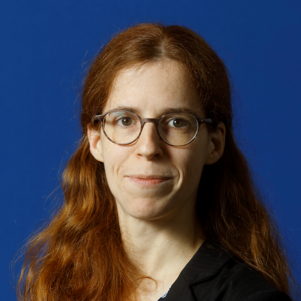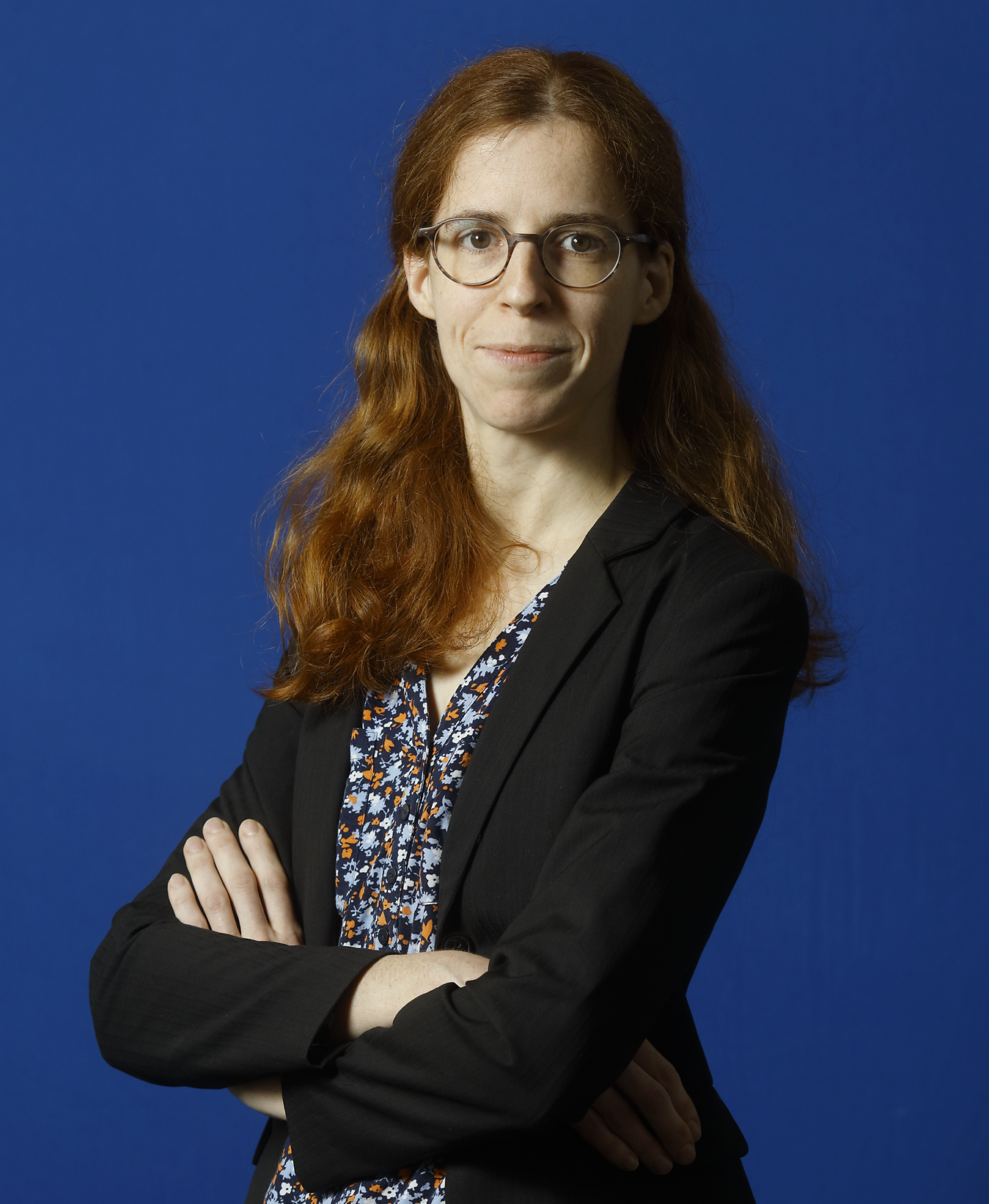Professor Axelle Viré brings winds of change to energy transition
“With floating wind energy technology tested in hybrid labs we can radically scale up and speed up the use of offshore wind energy in the energy transition,” says Axelle Viré, Full Professor of Floating Wind Energy at TU Delft in her inaugural speech on 16 February 2024. “But we can’t do it without new ways of working together in diverse teams across disciplines and sectors. Inclusive leadership is the key to bringing these people together.” Viré will give her inaugural address on Friday 16 February 2024 at 15.00 in the Aula Congress Centre at TU Delft. On that day the HybridLabs consortium she leads will also officially be launched. Visitors are welcome to attend the address in Delft or watch a live stream or recording.
To meet climate goals we need 2.000 GW of offshore wind energy globally in 2050. That is 30 times as much as now. For Europe and the Netherlands 15 times. At the moment almost all – in fact 99,6% - of offshore wind turbines are fixed to the seabed and that’s only possible in waters that are at most 60 metres deep. A result is that shallower areas become very crowded. The North Sea is ideal for wind farms, but it’s also the natural habitat of animals, a very busy transport route and used for fishing. Full Professor of Floating Wind Energy, Axelle Viré: “To relieve those busy, shallow areas and unlock the full potential of offshore wind energy, we have to start using the 80% of all sea locations that are currently too deep for wind turbines.”
Floating wind energy
The solution Axelle Viré and her colleagues research is floating wind energy. The turbines are not fixed to the sea bed, but placed on floating structures that are moored to the seabed with lines. That makes it possible to position them in areas with sea depths of up to 1000 metres. In the future the turbines could even be cut loose from the sea bed entirely, creating for example free-floating hydrogen factories. Viré: “Floating wind turbines are massive structures. Including the blade they can be 190 metres tall on floating structures half the size of the market square in Delft. The technology is highly promising, but it also comes with challenges. How to design, manufacture, install, operate and maintain them? How do you keep them afloat, how can you control the dynamics when the platform and wind turbine are at the mercy of the waves?”
How to speed up implementation
To meet climate targets on time Viré also looks at ways to speed up innovation. Viré: “We now use full-scale demonstration to test whether the technology actually works, but at the moment there are only a handful of test sites worldwide and the clock is ticking. If we reproduce reality in the lab, we can skip full-scale demonstration completely and speed up development times.” A solution Viré came up with is the Floating Renewables Lab which combines physical experiments and numerical modelling to for example simulate wave loads in a wind tunnel or wind loads in a wave tank. The 40-partner consortium Hybrid Labs, chaired by Axelle Viré and officially launched on the day of her address, accelerates Dutch innovations in offshore renewable energy through data-driven hybrid labs. Viré: "The scale of infrastructure and innovations in HybridLabs is unique. We connect a wide range of labs and real offshore demonstration sites through smart data-driven methods."
The human factor
Radically new technology and new, speedy, ways of testing alone are not enough to scale up and speed up the use of offshore wind energy, according to Viré. “To come up with offshore wind technology that actually works in areas that are also used by other stakeholders and for other purposes, we need to co-create that technology together from the start. To make this really work we need to embrace inclusive leadership, where all perspectives, disciplines and interests are valued and taken seriously. I believe the mindset we all need for this starts in learning communities where we empower people to be the best versions of themselves, teach them to look beyond their bias and be open for other perspectives.” As Diversity Officer at the faculty of Aerospace Engineering Viré is a front runner on diversity and inclusion at TU Delft. “Diversity and Inclusion are not separate, they are an integral part of creating technology that will really have impact for a better society.”
Fundraising
Do you want to support our mission to bring wind energy to schools in Delft? We need more (young) people working in the sector to speed up the energy transition. We want to contribute to this cause by targeting schools and making learning materials and inspiring stories accessible to all children. You can contribute to this mission with your donations. With the donations, we will be able to send schools a package for their library containing:
- A copy of the book “When I grow up” translated in their school language
- A copy of the book “Let the wind blow” in their school language
- Unlimited digital copies of all materials
We will start the dissemination with primary and secondary schools in Delft and broaden the region to other cities until donations run out. We hope to be able to provide all 59 schools in the Delft region with a package for their libraries and then move to the 218 schools in Den Haag and 295 schools in Rotterdam. But our true ambition is to reach all the 7253 schools in the Netherlands and then move abroad! Can you make this happen?

Prof. Dr. Ir. A.C. (Axelle) Viré
✉ A.C.Vire@tudelft.nl
